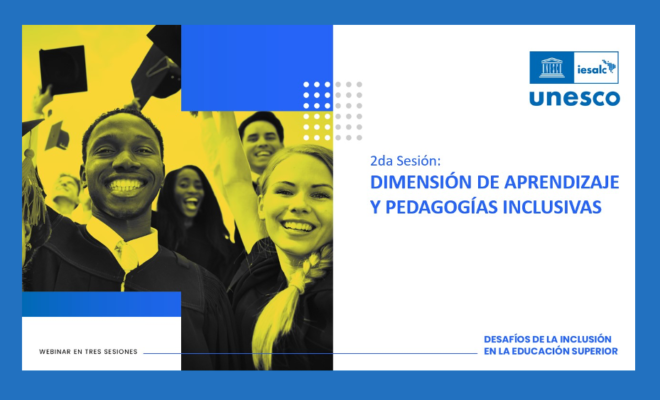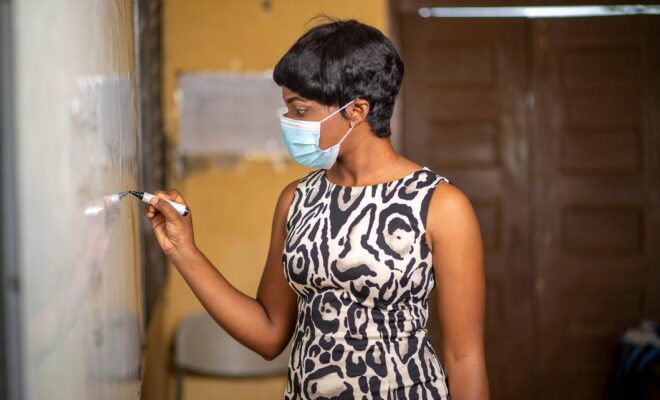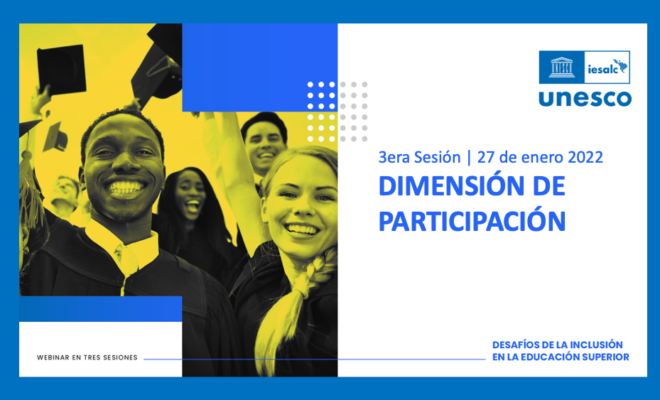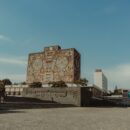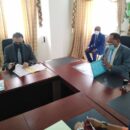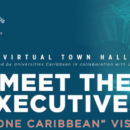Regional Webinar No. 11 (Latin America): COVID-19 and higher education. Impact and recommendations
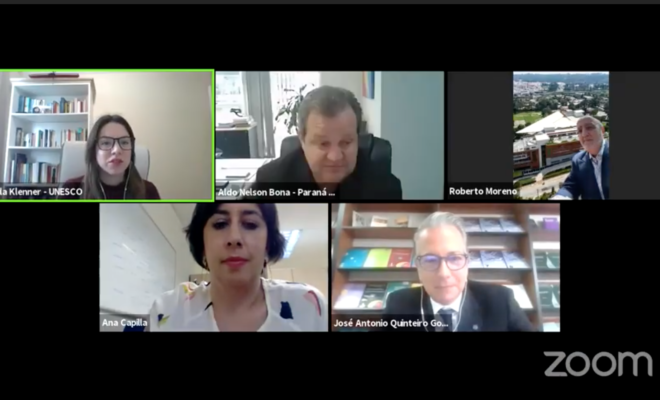
No dejar a nadie atrás en tiempos de la pandemia COVID-19 (Leave no one behind in times of the pandemic COVID-19) reaches its eleventh session, based on a fundamental principle of the UNESCO’s 2020-2030 agenda for sustainable development and the 2020-2030 education agenda, which emphasizes maintaining the focus on the most vulnerable people in contexts of crisis.
The main objective of this series of webinars is to support the ministries of education, as well as the different university institutions, to make the actions and solutions achieved to face the crisis affecting the whole world evident. The focus of the July 9 session, with the participation of the International Institute for Higher Education in Latin America and the Caribbean (IESALC), was to encourage debate and provide recommendations for the region.
The central objectives of this webinar were presented by Paula Klenner of the Oficina Regional de Educación para América Latina y el Caribe OREALC/UNESCO Santiago (Regional Office of Education for Latin America and the Caribbean OREALC/UNESCO Santiago): 1) to give an overview of the impacts of COVID-19 on higher education, to learn about the recommendations that IESALC shares with governments and institutions in charge of higher education, in order to mitigate the impact on the day after. 2) To discuss the guiding principles that should be involved in any framework of the face-to-face reopening of the tertiary education sector and the 3rd objective is to meet, through discussions, the challenges that higher education faces due to the current crisis.
José Antonio Quinteiro, the coordinator of IESALC programs, was in charge of the opening of this large session. For Quinteiro the abrupt transfer of contents to the virtual mode has brought the phenomenon of Coronateaching because the teaching methodologies and the curating of the contents are not analogous. This implies less satisfaction with virtual teaching on behalf of the students. In Latin America and the Caribbean, it is estimated that 20% of students may drop out; while in the United States 1 out of every 6 students may not return to campus.
Quinteiro added that “only 1 out of every 2 households in Latin America and the Caribbean has a fixed Internet connection from home, which leads to the recommendation that educational continuity should also include mobile technology, given that its penetration is close to 100%”.
“Our homes have become schools, university campuses, and libraries. The optimal conditions needed to equate virtuality with presence, as indicated by educational theory, seem difficult to achieve in our region,” said José Antonio Quinteiro.
Teachers must adapt to virtual environments, having to break with habits. One of the constant concerns of teachers is how to evaluate the competencies that are only acquired through practice.
Quinteiro highlighted the impact on the administrative sector of university institutions: how is administration handled at a distance? New work models are emerging; higher education institutions will be forced to make more optimized management of financial resources in the face of the expected drop in income.
The guiding principle of the exit and support strategy recommended by UNESCO is to ensure the pedagogical strategy, offering the right to higher education to all people in equal opportunities and leaving no one behind.
It is necessary to ensure equity and inclusion towards the hybrid model in which we will be arriving in the short and medium-term. This is an opportunity to re-engineer the HE processes and to ensure a more bearable transit through education. The University has been through all the pandemics to date and has come out of them well, he concluded.
For his part, Roberto Moreno Godoy, rector of the Universidad del Valle de Guatemala (Guatemala), began his participation by stating that “During these moments we are facing a series of situations that have led us to assume changes for which we thought we were not prepared, but have forced us to take the step to virtual education, for example.
On the lessons learned from the coronateaching experience he stressed that there are students and parents that are more involved in education; there is an increase in the autonomy of students and teachers aware of their training needs.
He highlighted some of the impacts that will collaborate with the improvement of university education after the pandemic: it has shaken its stagnant structure and forced incursions into new fields and technologies, it has fed creativity and made alliances flourish, and brought out the best qualities of all the actors.
For the Secretary of Education of the State of Paraná (Brazil) and Advisory Member of the Governing Council of IESALC, Aldo Bona, there are 2,500 Higher Education Institutions in Brazil, with a total of 8.5 million students enrolled in the system. The vast majority of them are private, with 88%, and 299 university institutions are public.
“I will talk about the reality of public HEI in Brazil and in particular about their students. In Brazil, there are federal and state universities. This is a period of great challenges. Brazil has experiences in which public HEI have done much to overcome the pandemic”.
Bona stressed that only 24% of the total of 8,450,755 students attending universities receive education virtually, while the remaining 66% attended the campus of their institution. 75% of the community in public universities receives face-to-face education and in private universities, 31% take this modality at a distance.
Ana Capilla, coordinator of Higher Education, TVET and Science, of the Organization of Ibero-American States OEI, said that “the pandemic is very disruptive and there is a lot of uncertainty and it is difficult to say what will happen.
“In the OEI we are producing reports on the relationship between education and productivity. On the other hand, we are interested in bringing education quality assurance systems closer together”.
Capilla stressed that the OEI defends the quality of distance education and the reliability of this modality.
On the other hand, she emphasized that universities with a tradition of Distance Education (DE), have a rigorous service to accompany students so that they do not leave their studies. It is difficult for face-to-face universities that have had to make the leap to have the staff and the ability to do the accompaniment. Among her concerns, Ana Capilla states that it is foreseeable that the drop-out rate will be even greater in this context. She stressed that there is a lot of work to be done. The pandemic has not essentially altered the work of the OEI.
Capilla stressed that the pandemic has shown that more research is needed. On the other hand, it has accelerated transformations and opened up paths that needed to be traversed, and she assured that we must take full advantage of this disruptive change and see it as an opportunity to grow and enrich our university systems. “Distance education is not cheaper. The investment that needs to be made is considerable, as is the development of digital content”.
She said the development of virtual technology is expensive, more teachers are needed, students need follow-up and support staff is required. It is another way of teaching with other costs, she said at the end of her participation.
Bona added that in Brazil, public universities are free for students, and in private universities, the government allows students to negotiate to reduce their fees. There is a rate of noncompliance with tuition payments that are increasing in recent days, as well as evasion of education due to payment difficulties.
In closing, Roberto Moreno Godoy, stated that our region has made very significant progress in the last decade to guarantee access to higher education. “In Guatemala we have a bigger gap and only 5% have had access. In dealing with this pandemic we have to look for everything in our power so that no one is left behind. Losing someone else because of the coronavirus would be truly unfortunate. Every effort for the permanence of our students is more than welcome and important.
Access the webinar:
RELATED ITEMS

